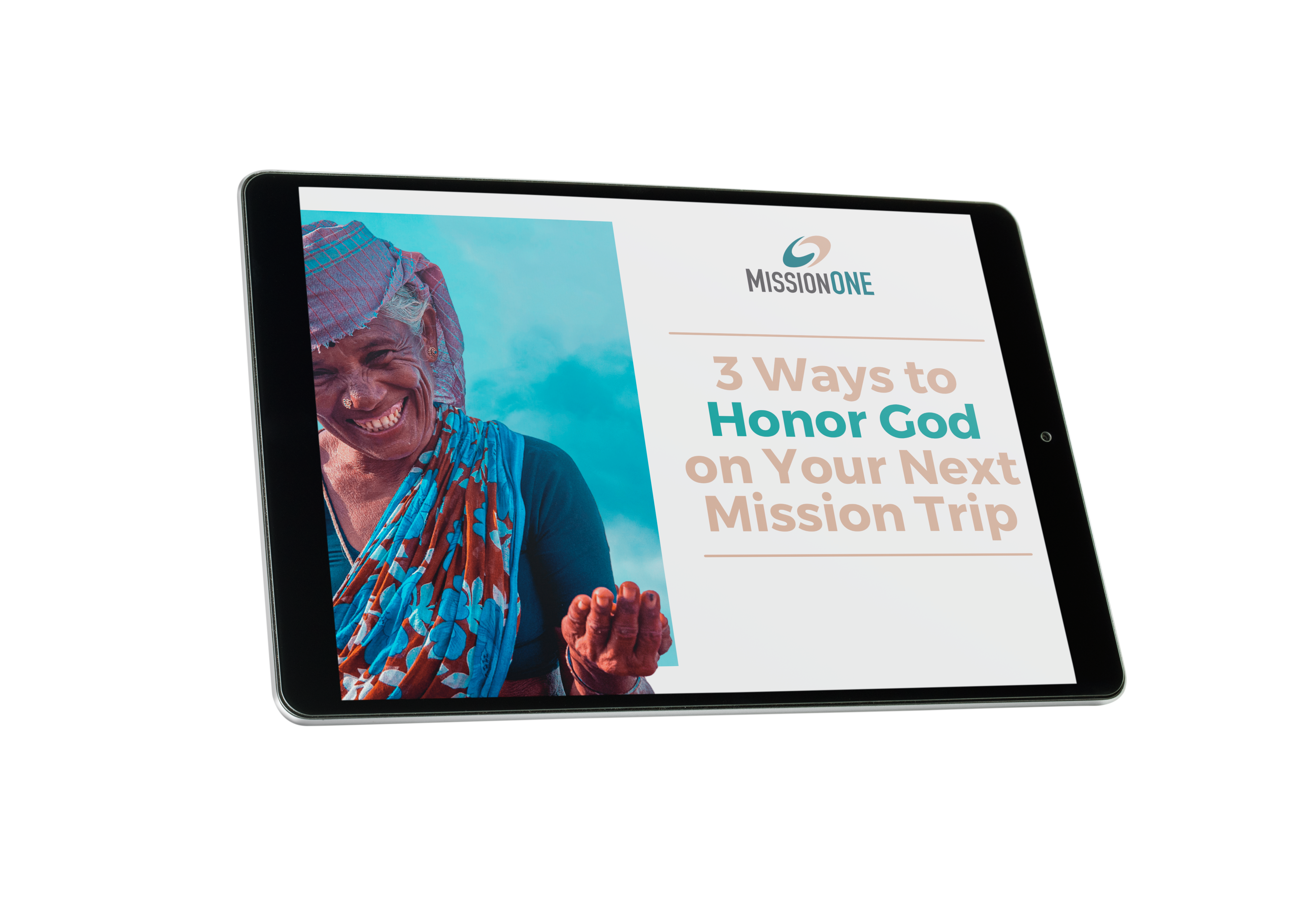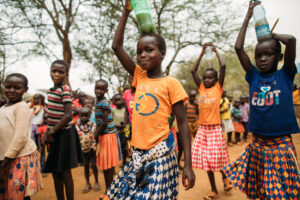When Christians are seeking out ways to help those around them, their best intentions are leading the efforts. They want to impart their knowledge, love, and understanding onto others so that they may feel the infinite love of our Creator. However, when we try to insert ourselves into a scenario we are called to or share wisdom from the Gospel, we are often forgetting one of the most important parts of faith: ownership.
In order for people to feel God’s abundance, they have to be allowed to hold it for themselves. They have to witness, experience, and incorporate it in their own way.
In their work with “The Cave People” of Nepal, our Mission ONE partners have seen tremendous growth and resilience. They have taken the skills and assistance provided and made it their own. Developing systems and pride in their work that far exceeds what anyone can simply give to them.
Healthy Community Development
In conversation with one of our partners, he shared a story about the organization that is happening within the village. Recently, these remote Nepalese people were living in caves, suffering at the hands of disasters like mudslides and Covid-19, and treated as if they were invisible. Since engaging with Mission ONE partners, they have been officially recognized by their government, established safe shelter, and begun to farm as a means to provide for their people.
And now, as they settle into their lives as farmers, the partners are witnessing the villagers take over control of their own fate.
After being gifted goats as a means to provide nourishment and financial opportunity, they began to develop a system for how to handle and mature this opportunity.
“During our call [our partner] held up a large stack of paper and said ‘You see this? These are all the signed agreements from each family that received goats.’ He explained that they put together a legally binding form that a member of each family signed saying that they commit to taking care of and raising the goats in a manner consistent with the overall goals of the village. That they wouldn’t sell or eat the initial goats that were given to them as they are to be used to breed and multiply the flock.
He informed me that the village created a council of four people who lead the village. The member of the family, a council member, a member from our local partner organization in Nepal, and a member from the local government each signed the document for each household.”
This goal-oriented strategy wasn’t instructed to them. It wasn’t handed to them. It came from them connecting their values to their goals and developing a system that could support them both.
It isn’t anyone’s job to dictate how a person or people develop and foster community. Healthy growth comes from collaboration, communication, and a drive to work collectively within a people’s own cultural parameters to achieve the desired result. This can be supported by any God-loving individual, but should always be driven by those it immediately impacts.
The Savior and Sustainability
While The Cave People may not recognize or identify their efforts as “sustainably-minded” that’s exactly what it is! Their preservation of this opportunity is also a framework for how all of us can grow our own spiritual and earthly wealth by embracing God’s glorious creations.
Through acquiring their goats, these wonderful people recognized the multiplying value of nature’s abundance and they took ownership of preserving it. Local, sustainable community development is something we should all seek to embrace. We know that our biggest power comes from hyper localization. While thinking globally can be beneficial, acting local is the quickest way to make your immediate sphere more like the Kingdom.
Our ability to take ownership of the immediate things in our control and to foster God’s patience and nurturing nature within our own arena is an act of true grace. It’s a manageable opportunity to spread the Savior’s message and offerings through small, calculated acts.
As we watch with awe as The Cave People have gone from nearly eradicated to thriving and developing their own system to carry into the future for generations to come, it’s a keen reminder that we all have this power.
We may not be able to stop factories from pumping out carbon around the world or provide clean water to every living soul (as individuals), but we can start with localized acts. Regenerative farming, supporting local producers, and teaching your kids to garden or care for a chicken can be the tiny drop that causes a giant ripple.
The Cave People have initiated their own drop by constructing a plan that can serve their long-term goals rather than just short-term needs. They are a prime example of what ownership and personal investment can produce. In addition to their contracts to care for and breed the goats, the community is also contributing a small amount of money each month to a communal saving to help support the families caring for goats.
This drive towards the future isn’t just about survival, it’s about thriving. It’s understanding that immediate satisfaction isn’t as desirable as indefinite prosperity.
In the words of our partner in Nepal, “That is ownership!” And God loves seeing all of us take the gift of this life and the richness of the Earth to grow our joy and feel His love.
Search the Blog
Free Resource

3 Ways to Honor God on Your Next Mission Trip
We're sharing three things you should consider before you organize or participate in an international mission trip, seek to do work in the multicultural neighborhood in your own city, or embark on any cross-cultural partnership.

